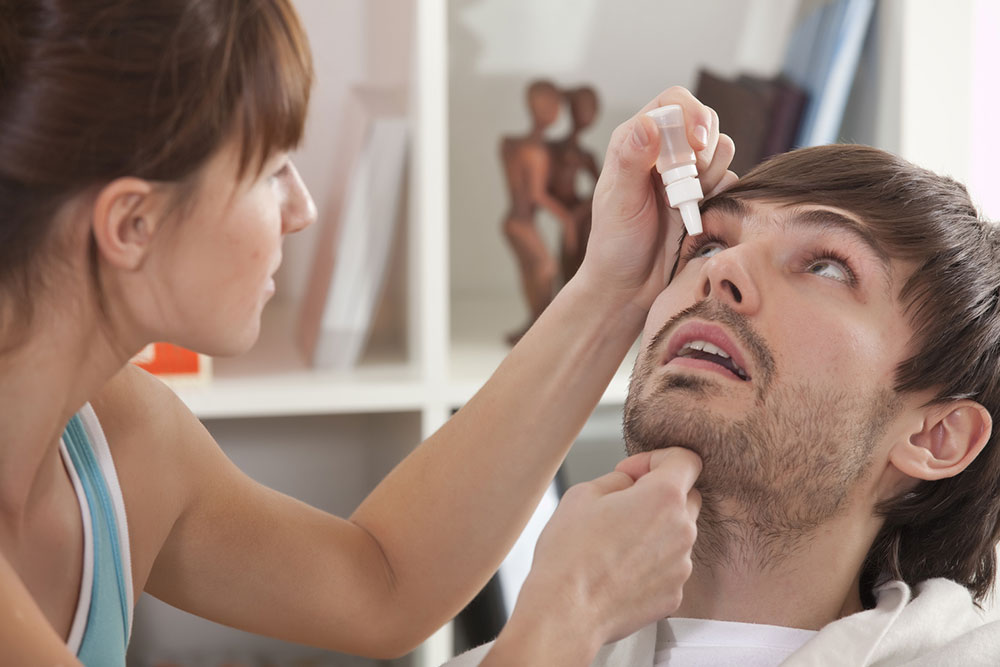An Extensive Guide to Itchy Eyes Treatment
When your eyes are red and itchy and if there is swelling on your eyelids, you may be having eye allergies known as allergic conjunctivitis. Eye allergies may be caused or triggered by pollen from trees, weeds, grass, etc.
It may also be caused by irritants like perfumes, cigarette smoke, or diesel exhaust. When your eyes release histamine along with other substances, it leads to itchy, red watery eyes. This can be seen evidently from the reaction of your eyes to some form of allergies.

Symptoms of itchy eyes
It is important to be aware of the symptoms of itchy eyes so that you can seek timely treatment for this problem. Itchy eyes are characterized by symptoms such as itchiness, burning sensation in the eyes, watery discharge from the eyes, a constant feeling that something is in your eyes, photophobia or aversion to light, production of mucus, redness, and puffiness.
Itchy eyes treatment and management
Itchy eyes treatment involves avoiding exposure to any of the above-mentioned factors that may be responsible for triggering the allergy. Itchy eyes treatment involves staying indoors in order to avoid being exposed to pollens that float around in the atmosphere. Pollen grains are mostly present in the air during early evenings and mornings.
Window fans can also be responsible for letting pollens and other allergy-causing substances into your house. Avoiding the use of such fans can be effective itchy eyes treatment. Instead, you should close your house windows and use air conditioners to keep these allergy triggers from entering the premises.
Whenever you are heading out of the house, an effective itchy eyes treatment is wearing sunglasses. These will help avoid pollens from coming in contact with your eyes and thus prevent allergies. Even while traveling, keep your car windows rolled up to prevent the pollens in the air from entering into your eyes.
Dust mites can also be responsible for causing itchy eyes and other allergies associated with it. As such, in order to avoid exposure to dust mites, use pillow covers that avoid allergens. Doing so can also be an effective itchy eyes treatment. Regularly washing your bedding will help you keep yourself protected from germs and allergens. Old mattresses may also be needed to be disposed of.
While cleaning the house, make sure that you are using a damp mop. Avoid sweeping in order to protect yourself from allergens. In case you have pets, you must avoid using any rugs or carpets that might end up collecting allergens in your house. Also, avoid using curtains as these can cause allergies to enter and accumulate in your house.
To keep all allergies at bay, it is necessary to get rid of allergens from accumulating inside your home. Molds growing inside your home as a result of humidity can be responsible for allergies. By using a dehumidifier to keep humidity at about 50%, you can watch out for such molds.
You can also be susceptible to pet-related allergies. Every time you come in close contact with pets, you must make sure that you wash your hands and clothes.
Most of the times, allergens are airborne and therefore, avoiding these may not be possible completely. In such cases, you must consult with your allergist who can recommend a course of treatment as per your case.
Medication
Over the counter, non-prescription oral medications, as well as eye drops, may be used to deal with eye allergies in the short term. However, prolonged use of these medications without any results can only worsen your condition.
Your allergist may also prescribe eye drops to deal with the condition. These eye drops may be provided for long term or short term relief, based on the treatment that is best suited for your condition.
Although eye drops like antihistamines and mast cell stabilizers can be given to 3-year-old children and those older than them, when you are dealing with kids, it is recommended to consult your physician to be on the safer side. Some of the eye drops and medications that can be used to get relief from eye allergies are tear substitutes and decongestants.
Tear substitutes help to get rid of allergens from your eyes by washing them off. These also help in moistening your eyes and providing a soothing effect. Decongestants help to deal with the redness caused by the itchy eyes allergy.
While decongestants provide relief from redness and itching to a particular extent, prolonged use beyond 2-3 days can cause more redness and swelling.
Treatments
One effective itchy eyes treatment involves the use of antihistamine eye drops. They can prove to be quite effective. Apart from these, you can also go for non-steroidal anti-inflammatory drugs or NSAID.
Also available in the form of eye drops, these medicines can help to provide relief from itching. Corticosteroid eye drops, allergy shots, and non-sedating oral antihistamines may also be used to deal with the condition.